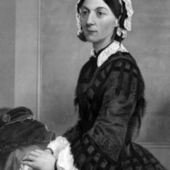While we’re all happy to see the back of 2020, we may be grappling with the annual post-Christmas despondency amid short, winter days and the cloak of Covid continuing to mute our freedoms, lifestyle and habits. But the days are (gradually) lengthening and the vaccine is being rolled out and there are many ways to stay positive. We show you how.
- Get Moving: When the Mercury falls to single digits, throwing on your trainers and Lycra and braving the elements can easily play second – or no – fiddle to slumping on the sofa with a hot cup of tea and starting another Netflix series. But experts agree that exercise is a great way to boost your mood. It triggers the release of endorphins into the bloodstream, relieving pain and producing a feeling of well-being. A lack of exercise increases your risk of anxiety and depression.
- Stop over-thinking: People often dwell on problems, going over and over the same negative thoughts without making any progress to resolve them. If you’ve been worrying about a problem for 30 minutes or more without coming up with a plan of action, or you’ve been going over questions with no answers, it’s time to stop. The main objective is to shift your focus from worries to practical problem-solving. Stop and ask yourself what steps you can take to address the problem, break it into realistic components and set about taking the bull by the horns.
- Set a new target: Drawing up a new goal helps to focus the mind. It could be something big and demanding, like learning a new language or something small like challenging yourself to read more or switch off your screen an hour before going to bed. If it’s outside your comfort zone, and it’s pushing you forward, it gives you a focus and a sense of control. This, in turn can give you a sense of self-worth.
- Reach out to people: The pandemic has made it a lot harder to be with others in person, and winter can make it even less attainable. That’s a big issue for millions of people and the mental health consequences for some will be serious. So, try to maximise social contact opportunities. Isolated people are more likely to focus on themselves and this can make them feel even more alone. Reach out when you can, and if Covid-19 means you can’t do that in person, make that phone call to a friend, or arrange to talk online.
- Train yourself to be optimistic: Optimists live longer, have better relationships and better immune systems. Try writing down three things – each day – that you’re grateful about, to force yourself to focus on what’s gone well and why. It’ll fire up the left-hand side of your brain, which is associated with positivity. Emotions are contagious, so try to steer away from negative, glass-half-empty people who are constantly complaining, otherwise you’ll find yourself becoming one of those people too!
And if you want more advice on how to banish the blues, email us to obtain the recording of our recent virtual session on this topic by psychotherapist and coach Phil Cox.





